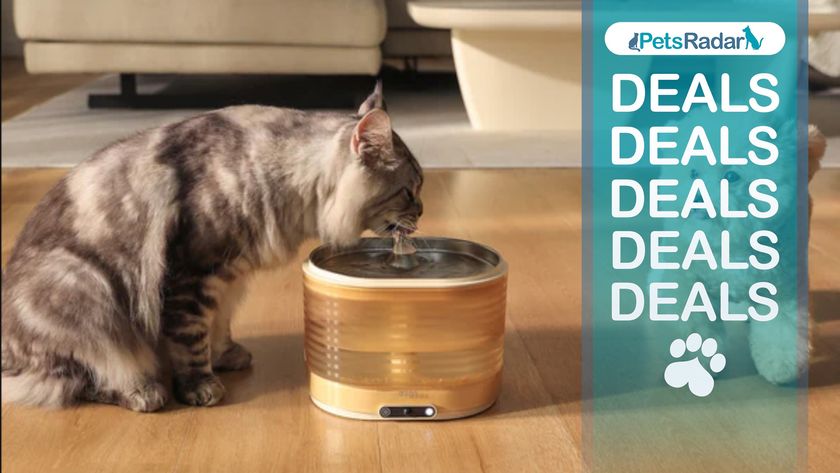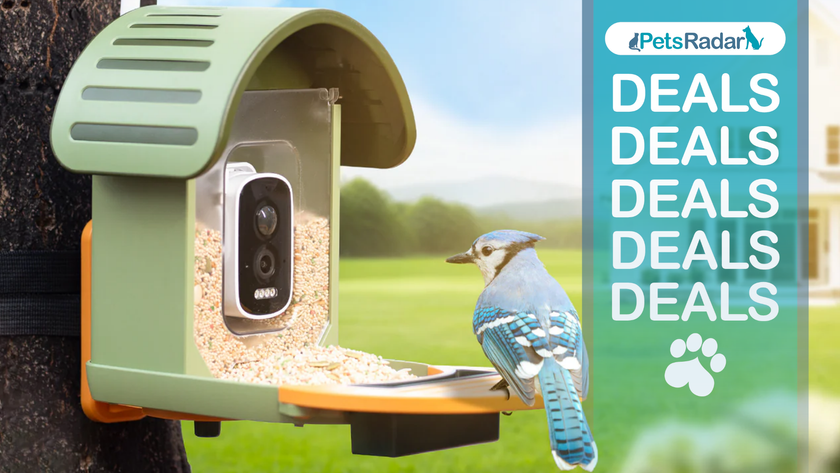Eight ways to find a responsible dog breeder, according to an expert trainer
Thinking of getting a dog? Here's how to find a great breeder...

When it comes to welcoming a new fur friend into your family, finding a responsible breeder that you trust is the first step.
Bringing home a puppy for the first time is incredibly exciting, but long before you start shopping for a bed, food, and the best puppy toys, you'll want to do your homework to ensure you choose the right breeder.
"It can be challenging to even know what a good breeder is, let alone find one," says Carolyn, a professional trainer and founder of Good Dog Training.
"Breeders are not all created equal, and just because a puppy is purebred, AKC registered, a fancy mixed breed, or is expensive doesn’t mean that puppy is well bred."
Thankfully, Carolyn says there are eight things you can be on the lookout for to ensure you find a good breeder who has you and your new puppy's best interests at heart.
Read on to find out what they are...
A post shared by Good Dog Training (@gooddog.training)
A photo posted by on
1. Health screening of breeding dogs: "If the breeding parents are genetically clear, the puppies won't have preventable genetic diseases," Carolyn explains. For example, if x-rays show that the parents have healthy hips and elbows, then your new puppy is less likely to develop dysplasia later in life.
PetsRadar Newsletter
Get the best advice, tips and top tech for your beloved Pets
2. All the dogs should be part of the family and live in the home: "Puppies raised in kennels or barns or backyards are more likely to be anxious and less likely to be socialized," says Carolyn. These sorts of situations tend to signal that someone is running a puppy mill or doing backyard breeding as opposed to being an ethical breeder.
3. Using positive training methods: "Using aversive training shows a lack of knowledge about dogs. I want to know the puppy I'm buying was raised with love and respect and that the parents were too. Stressed/anxious mother dogs are more likely to have anxious puppies," Carolyn explains.
4. Can explain how they socialize the puppies: According to Carolyn, a good breeder will understand the importance of socialization on raising happy and healthy dogs. "Puppies socialized early on are far less likely to have aggression, reactivity, or anxiety issues."
5. Allows you to come to the home and meet the parents: "This allows you to ensure it's not a puppy mill/hoarding situation, allows you to ensure the puppies and dogs are raised in a clean, healthy environment, and allows you to meet the parents and ensure they're friendly dogs."
6. Asks you a lot of questions and happily answers yours: "Good breeders don't just sell a puppy to anyone," says Carolyn. "They want to make sure their puppies go to a great home, which is why there's usually an application and lots of back and forth."
7. Has puppies checked by a vet: "Puppies can seem healthy but still have a heart murmur, or other conditions you would want to know about. Good breeders will care about the health of their puppies."
8. Offers help, guidance, and support before and after purchase of the puppy: Carolyn says that a good breeder wants their puppy buyers to be happy and they also want their puppies to do well in their new environment. "They are invested in their dog's for life and will help you understand what to expect and offer help along the way."
Once you've selected a responsible breeder and found your new forever friend, be sure to check out our guide to puppy behavior for a vet's advice on how to solve the most common problems in your puppy's first year of life.

Kathryn is a freelance writer who has been a member of the PetsRadar family since it launched in 2020. Highly experienced in her field, she's driven by a desire to provide pet parents with accurate, timely, and informative content that enables them to provide their fur friends with everything they need to thrive. Kathryn works closely with vets and trainers to ensure all articles offer the most up-to-date information across a range of pet-related fields, from insights into health and behavior issues to tips on products and training. When she’s not busy crafting the perfect sentence for her features, buying guides and news pieces, she can be found hanging out with her family (which includes one super sassy cat), drinking copious amounts of Jasmine tea and reading all the books.












